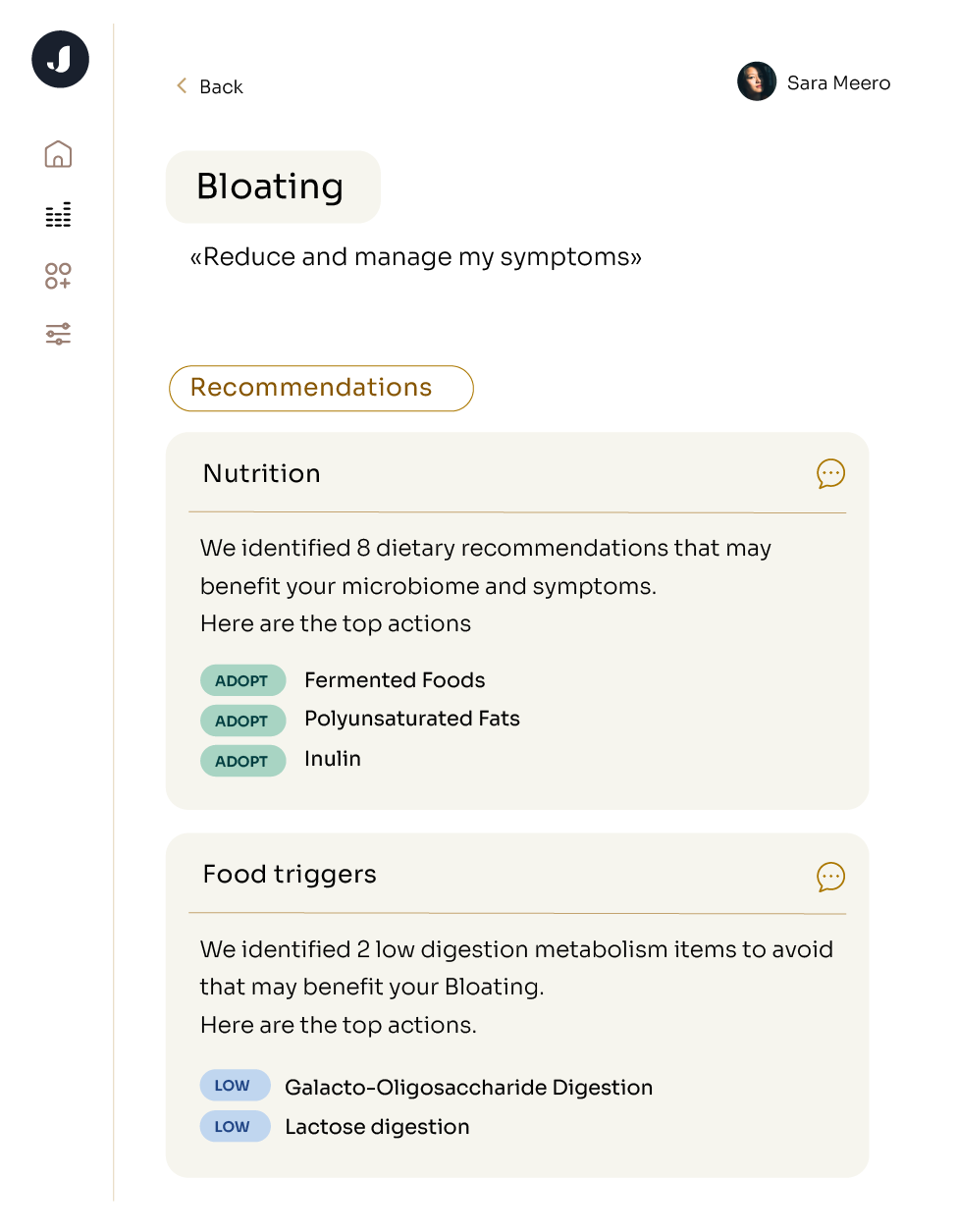Dr. Axelrad: Sure. In my research capacities, I focus really on two major disease types: inflammatory bowel diseases, which include Crohn's disease and ulcerative colitis, and also Clostridium difficile infections.
Let's start with inflammatory bowel disease. These diseases are immune-mediated diseases of the gastrointestinal tract. There is no known cure, and they are tightly related to what's happening in the gut microbiome. I would even say that inflammatory diseases outside of the gut have close relationships with what's happening at the gut microbiome. The reason for that, again, is that there is a very close interaction between the microbes and the immune system in the lining of the gut. I also research how we can predict the disease course and therapeutic response to select better treatments.
In my capacity, studying C. diff. infections, this is clearly a disease of the microbiome. There are two factors in C. diff that really make a big difference in outcomes. One is the stability of the gut microbiome - if it’s unstable, for example due to lots of antibiotic exposure, that can be associated with an increased risk of C. diff infection. The second factor is abundance of C. diff in the microbiome. We may actually have C. diff inside of us right now, but it’s important to know in what relative abundance.
Patients often come to me and say, “I need to prevent having C. diff. again! I cleaned my house, I'm not riding the subway, I'm not doing anything.” However, it’s not really about the exposures, it’s more about the microbiome. What’s very cool about C. diff. is that it's the only human disease where we have FDA-approved microbial therapeutics to help prevent this infection. We still generally will give antibiotics for the infection, but then we can provide microbial treatments that can help reconstitute the microbiome in a way that prevents recurrence of C. difficile in the future.
Anybody with chronic gastrointestinal symptoms, whether that's diarrhea, bloating, nausea, vomiting, constipation, leading weight loss, unexplained weight loss, in particular abnormal laboratory values, such as anemia, low iron, et cetera - these definitely should be evaluated.
Now, as far as having them specifically evaluated for inflammatory conditions, we have objective tests for this, right. This is actually really important because sometimes you hear out there blogs and social media about “ongoing inflammation” and “anti-inflammatory ways of living.” We have objective medical tests to assess for inflammation of the gut. Those include stool tests that look for something called fecal calprotectin. If calprotectin is normal, it’s much less likely that there is an inflammatory condition of the GI tract. We can go even a step further with a colonoscopy or an endoscopy, where we lay eyes on the gut and work with pathologists to get a better understanding of what’s going on. Getting that objective evaluation is critically important.
In the absence of clear evidence of inflammation, again, doesn't mean there's not something going on. But it may be less likely that this is being driven by something like inflammatory bowel disease and maybe more driven by something functional, like irritable bowel syndrome, which we have even less understanding and less validated treatments for.
Sure - IBD and IBS are often confused. So inflammatory bowel disease, or IBD, has two main subtypes: Crohn's disease and ulcerative colitis. We call these diseases “immune mediated” because we have not identified any known trigger, and the result is uncontrolled inflammation. IBD usually requires medication to dampen that immune response, but modulating the microbiome is an active area of study that provides benefit for some patients, too.
IBS stands for Irritable Bowel Syndrome. IBS, is a non-inflammatory condition of the gastrointestinal tract, and it’s not well understood. We tend to call this more functional, although we're learning every day about changes in the intestinal lining that may actually cause IBS. Anti-inflammatory therapies don't work for irritable bowel syndrome, and modulating the diet or microbiome seems to have the best results.
While there’s overlap in symptoms, bleeding is much more common in IBD than in IBS. And they're managed differently, although again, they can coexist in an individual patient.
Yes, absolutely. We’re trying to understand more now about how the gut microbiome may be related to other disease states like irritable bowel syndrome or even cancer. So we've learned from many studies now that patients may respond differently to cancer treatments like chemotherapy and immunotherapy based on the microbes inside of them that the gut microbiome can actually predict response to chemo. Same for transplant patients, patients who require solid organ transplant for a variety of diseases - the gut microbiome can predict whether or not they'll have an infection or a complication of that transplanted organ. I think we're going to see a lot more research on effective ways of modulating the microbiome that can not only treat but also prevent human disease.
I'm excited about a couple of things. One is that every day, we're getting a little bit broader understanding of the microbes inside of us. We’re refining that technology to more about the bacteria, viruses, and other types of microbes in our gut, the metabolites they’re producing, and the chemical environment they’re creating in the gut.
There’s a lot of research being focused now on spatial transcriptomics. That is understanding, where the microbes are spatially in the gut, and how they're contributing, perhaps to disease or therapeutic response. Sometimes a stool sample may not be representative of the microbes that are interacting directly with the gut lining, so seeing their distribution in the body is helpful.
Another is we're going to see an explosion and microbial based therapeutics coming. And I think that having FDA approved products is really important because that means they've had to be more rigorously studied. Many times patients will say, “I took this probiotic, and everything got better.” Or, “I read this online, and I started taking this cocktail of bacteria.” But things need to be studied in placebo-controlled environments where you know whether or not an intervention is having an impact. Patients may take various products and feel better, and that's great. But to have evidence to say that it works, you really need a placebo-controlled trial. We're going to see an explosion of products in this area focusing on GI conditions as well as cancer, other inflammatory diseases, and more.





